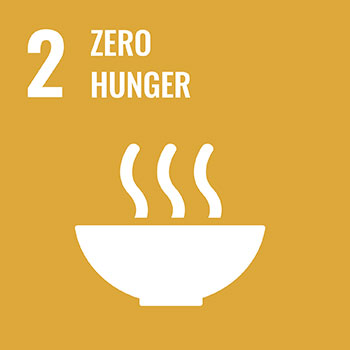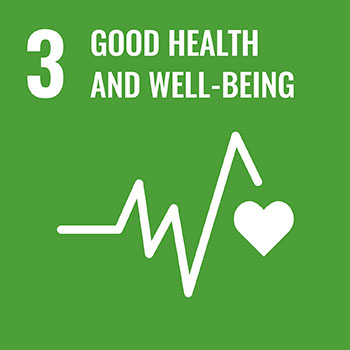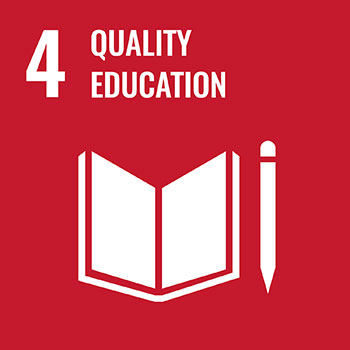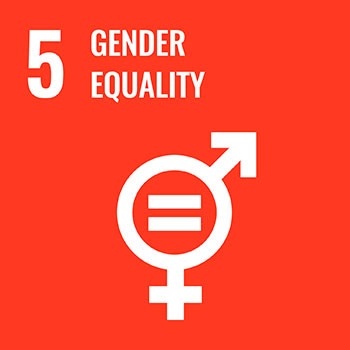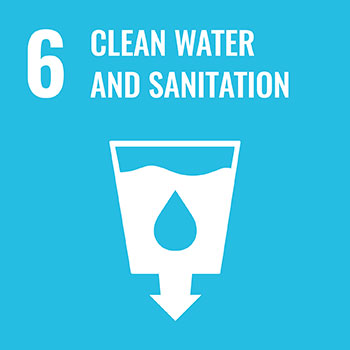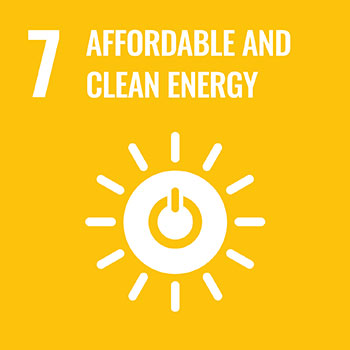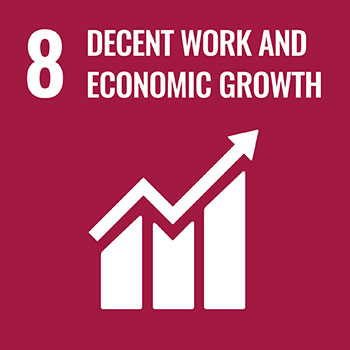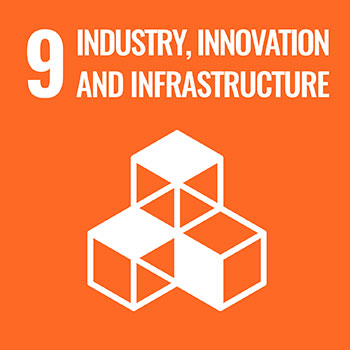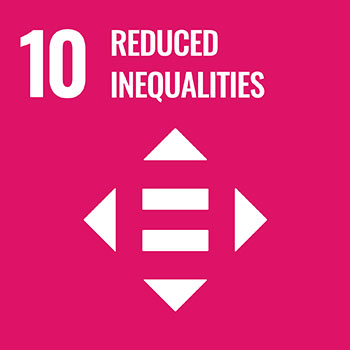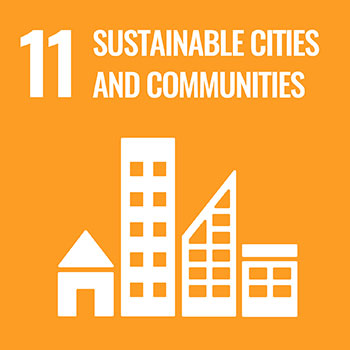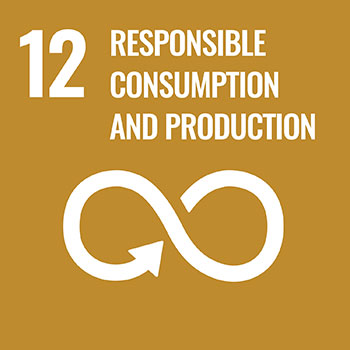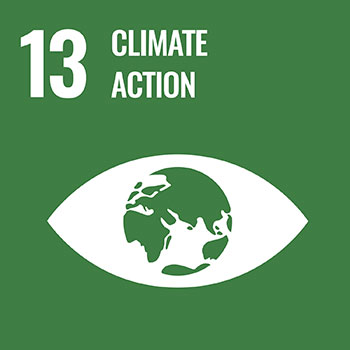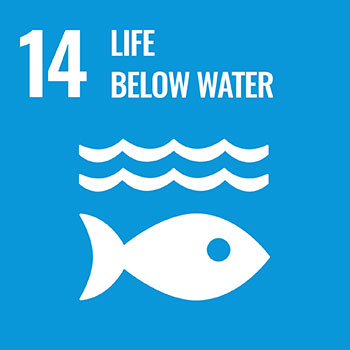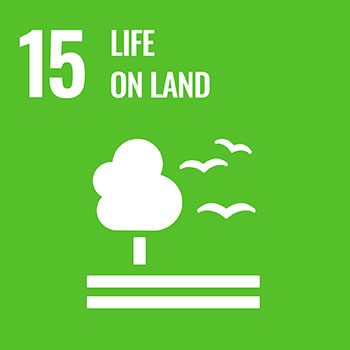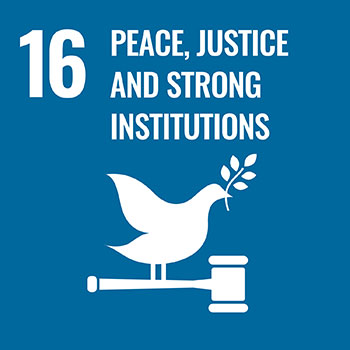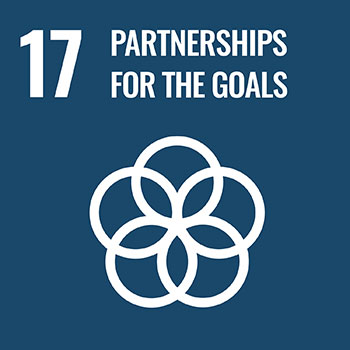Search for academic programs, residence, tours and events and more.
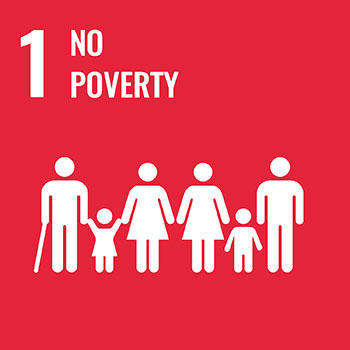
End poverty in all its forms everywhere.
Wilfrid Laurier University has various initiatives and programs that address poverty at different levels, both locally and globally.
The work that Laurier completed in 2024 to advance SDG 1.
The Joyce Family Foundation has established a $2 million endowment to provide bursaries for students studying at Wilfrid Laurier University’s new Milton campus. The gift was announced during a celebration at Laurier’s Milton Academic Centre on Nov. 12 with senior university leaders, students and members of the Joyce Family Foundation in attendance. Bursaries funded by the endowment will benefit students facing financial barriers to their education who have demonstrated an ability to overcome obstacles and adversity. Each year, up to 12 undergraduate students at Laurier’s Milton campus will receive a $5,000 bursary, renewable for each year of their program. Students in all programs will be eligible to apply.
CIBC is generously supporting the creation of two new student awards to help foster the success of equity-deserving students at Wilfrid Laurier University and help build the foundation for Laurier’s new Milton campus, while also encouraging the study of science, technology, engineering and math (STEM). Through a gift of $300,000, the newly created CIBC STEM Entrance Award will support full-time undergraduate students entering their first year at Laurier who are part of the following equity-deserving groups: Black students, Indigenous students and students living with disabilities. An additional gift of $50,000 from CIBC will support the CIBC Milton Founders Entrance Scholarship, designated for incoming undergraduate students at Laurier’s new Milton campus. For both awards, preference will be given to students in STEM programs.
While attending Wilfrid Laurier University’s Brantford Community Safety Search Conference in November 2023, Dave Wiedrick was struck by a statistic shared by Laurier researcher Tarah Hodgkinson. In her assessment of Brantford police activity, Hodgkinson found that 85 per cent of police calls were not related to crime. Most calls were reporting social disorder, such as mental health crises, largely made visible and exacerbated by homelessness. Before joining the City of Brantford as director of bylaw compliance and security, Wiedrick spent many years working as a police officer. Hodgkinson’s data confirmed what he had long suspected: there must be a better way to address social disorder than by using valuable police resources, and perhaps helping people off the street was the first step. Wiedrick brainstormed ideas with community stakeholders at the conference, including social workers and downtown business owners, and left inspired to make a change.
Laurier research centres advancing SDG 1.
The Manulife Centre for Community Health Research is an interdisciplinary community development and research centre guided by multiple social determinants of health. The centre acts as an incubator for students committed to community-based scholarship and development in the field of health and well-being. The centre welcomes master’s and PhD students, as well as postdoctoral fellows, from a variety of academic disciplines to work within any of its communities of practice. Research priorities include women and gender, global health and development, Francophone issues, Indigenous health and wellness, environmental issues, community economic development and social innovation.
The Tshepo Institute for the Study of Contemporary Africa (TISCA) is a university-wide research centre with active members across multiple faculties involved in Afrocentric research projects. TISCA’s vision is to provide scholars specializing in Africa with a platform and voice to produce and share timely interdisciplinary knowledge and discourse about issues affecting contemporary Continental Africa and its diaspora. TISCA’s mission is to promote global awareness and excellence in knowledge development on issues in contemporary Africa and the African diaspora in Canada and beyond.
The Centre for Community Research, Learning and Action (CCRLA) is an interdisciplinary research centre located in Laurier’s Faculty of Science. The centre's work is focused on developing community partnerships and producing research, learning and action that advances community well-being and social justice. CCRLA facilitates community-based research by brokering linkages between community partners and Laurier student and faculty researchers. CCRLA provides an activity centre for social policy development and community action. The defining feature of the centre is its commitment to collaborative processes between university, community, industry and policy partners that honour the unique wisdom and skills of the non-academic community.
Laurier initiatives in 2024 that advanced SDG 1.
LaunchPad Brantford is an on-campus incubator dedicated to supporting current Laurier students, alumni and the wider community with turning business dreams into realities.
StartUp Lab, Laurier's incubator in the Lazaridis School of Business and Economics, provides support, mentorship and resources to startups and social ventures founded by Laurier students, alumni and community members at the Waterloo campus. Whether an idea has already been tested through Laurier's innovative curriculum and co-curricular experiences, in the community, or if it's still an untested idea, businesses and individuals can apply to StartUp Lab to bring an idea to life.
Laurier recognizes that the financial costs associated with a post-secondary education can be daunting for some. The institution offers an array of financial supports for students to finance their education and ensure an inclusive community.
Laurier is committed to increasing enrollment of Indigenous students on our campuses and offers dedicated financial support for Indigenous students seeking a postsecondary education.
Discover how Laurier is contributing to United Nations Sustainable Development Goal targets.

